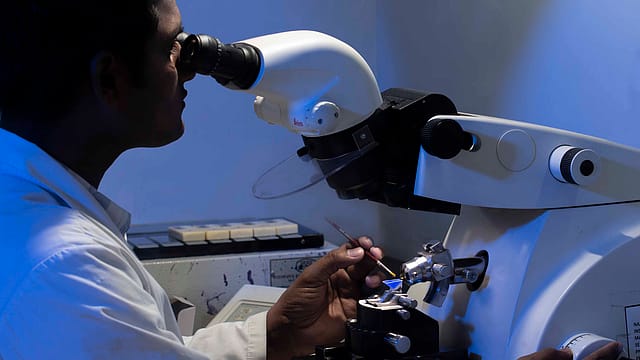Medical device makers wary of new Bill to regulate drugs, devices and cosmetics
ADVERTISEMENT

The Drugs, Medical Devices and Cosmetics Bill, 2023, scheduled to be introduced and passed in the current session of the Parliament, may not incentivise local production and innovation in medical devices, a key industry body – the Association of Indian Medical Device Industry (AIMED) fears.
In a letter to Union Health Minister Mansukh Mandaviya, AIMED says the final draft of the Bill does not propose an independent regulatory regime for medical devices but continues with the current practice of treating devices nearly as drugs with the same punitive actions for errant manufacturers. “Medical devices are not drugs and in the past a few of them were incorrectly regulated as drugs until the introduction of Medical Devices Rules in 2017. But even then, medical devices rules came under the Drugs and Cosmetics Act 1940, which will now be replaced by the proposed Bill. We strongly call for a separate, simple and implementable regulator for medical devices. The law needs to be ‘civil’ in nature, as in the case of FSSAI (Food Safety and Standards Authority) regulations or as International Medical Device regulations like the one followed by Canada, EU, Brazil, Saudi Arabia, Japan, etc.,” says Rajiv Nath, forum coordinator, AIMED.
The domestic device makers have proposed to restrict punitive and criminal judicial action to non-licensed or non-registered manufacturing facility of medical devices and manufacturer who have not applied for registration and licensing compliance. The letter to the minister notes that while the Bill mentions risk proportionate regulations, there is no clarity on exemptions or diluted regulatory and penal requirements for very low risk non sterile surgical instruments and other non measuring non sterile medical devices as is the regulatory practice in most developed countries.
The medical device industry also questioned the proposal to have a central medical device testing laboratory by stating that one laboratory in a single location to do biocompatibility testing, animal studies and testing, mechanical and chemical testing or electronic component and product testing for over 6,000 types of medical devices may not be practical.
The pharmaceutical industry and the cosmetics industry are also keenly watching the final contents of the Bill, which repeals the Drugs and Cosmetics Act, 1940, and seeks to regulate the import, manufacture, distribution and sale of drugs, medical devices, and cosmetics, and provide for regulatory standards to ensure their quality, safety, efficacy and performance.